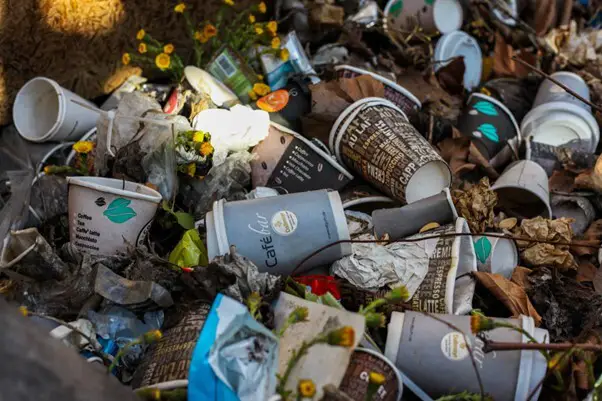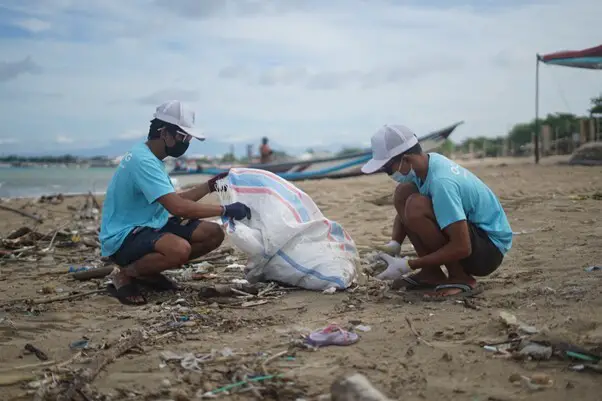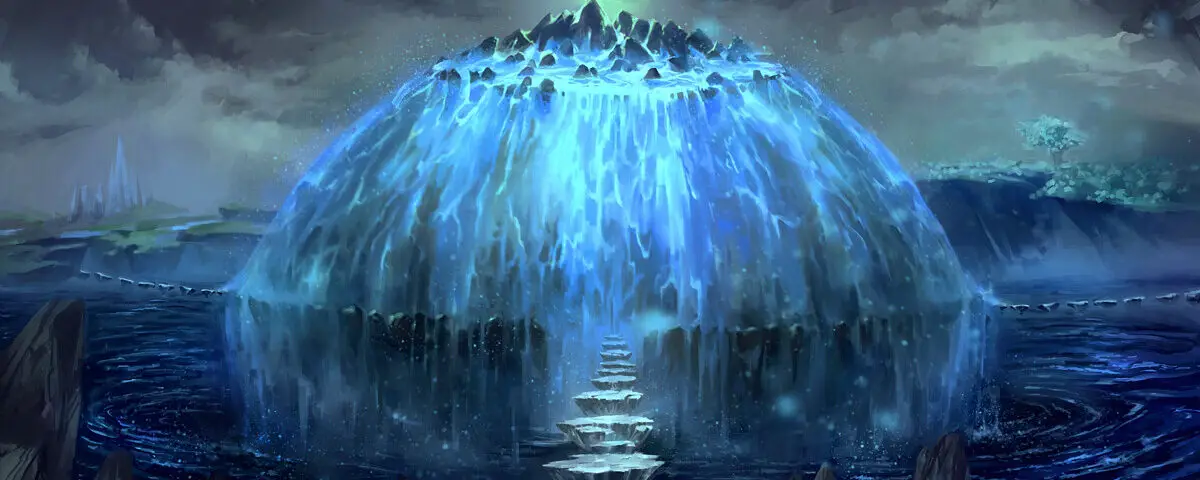|
Getting your Trinity Audio player ready...
|
Why is it important to protect the environment?
The Earth is a precious and delicate ecosystem that sustains all life. It is the source of air, water, food, and shelter. Without it, humans would cease to exist. It’s our responsibility to protect the environment for future generations and acknowledge its economic, social, and political benefits.
The human population is using nature 1.8 times faster than the planet’s biocapacity can generate. We often take the natural environment for granted, engaging in practices that harm environments and put our health at risk.
The relentless exploitation of natural resources has led to:
- pollution,
- climate change, and
- the destruction of habitats.
The effects of our actions are already evident in the form of:
- rising sea levels,
- extreme weather events, and
- the extinction of species.
If you want to dive deeper into why we must protect the environment – buckle up, and let’s explore the importance of safeguarding the planet. From the ecological to the economic, we cover it all.
Environmental degradation

Environmental degradation is the deterioration of natural environments that can be caused by human activities, such as:
- pollution,
- over-exploitation of resources, and
- deforestation.
What causes environmental degradation?
When we use more resources than nature can provide (also known as overconsumption), it leads to environmental degradation.
We are:
- polluting the air and water,
- destroying habitats,
- overfishing the oceans,
- depleting natural resources,
- steadily warming the atmosphere, and
- losing biodiversity (the variety and abundance of species on Earth) – a 69% drop since 1970.
As a result, ecosystems become unbalanced and are unable to sustain life.
How does environmental degradation affect human health, wildlife, and the planet?
Environmental degradation has a profound impact on human health, the planet’s biodiversity, and our future.
Human health:
Pollution from industrial activities is known to cause respiratory illnesses, such as asthma and bronchitis. Deforestation can lead to soil erosion which causes flooding and landslides that put people’s lives at risk.
Wildlife:
Many species are threatened with extinction due to habitat destruction caused by deforestation as well as pollution of their natural habitats. Climate change is causing species to migrate, putting them in competition for resources with other species and leading to a decrease in biodiversity.
The Planet:
Earth’s atmosphere is warming rapidly due to the emission of greenhouse gasses, which are largely caused by human activities like burning fossil fuels. This has led to an increase in extreme weather events, such as floods and droughts. It also leads to sea levels rising which threatens coastal communities world-wide.
The outlook looks bleak if we fail to take action and protect the planet.
Importance of protecting environments
Protecting environments is essential for sustaining life on Earth. Taking action has a multitude of benefits ranging from ecological to economic.
When we ensure a healthy planet, making it a safe, and beautiful place, we honour current and future generations.
Preserving biodiversity for the sake of ecological balance

Biodiversity is essential for maintaining healthy and balanced ecosystems. All species are connected, and when one species faces extinction, the entire web of life is affected.
Protecting biodiversity helps maintain the delicate balance of nature by preserving Earth’s genetic resources, which in turn helps sustain all life on it.
Preserving also means protecting vital “ecosystem services” such as clean air and water, protection from extreme weather, and pollinators such as bees and butterflies – maintaining the plants that provide us with food, fibre, and medicine.
Sustainable development and the role of environmental protection
Sustainable development is a strategy for economic growth that considers the long-term environmental and social impacts of our actions.
Environmental protection plays a key role in sustainable development by combating climate change, promoting energy efficiency, and protecting natural resources. It also encourages responsible consumption and production practices, such as using sustainable sources of energy.
By transitioning to more efficient methods of production and consumption, we can reduce emissions while preserving natural resources.
Economic benefits of protecting environments
Environmental protection is not only important for preserving the biodiversity of the planet, but it also has economic benefits.
Long-term economic costs of environmental degradation
The cost of environmental degradation is often more than we think, and there are both direct and indirect costs associated with it. For example, air pollution can result in health problems and reduced crop yields, which leads to higher medical bills and lost profits for farmers.
Additionally, climate change is causing extreme weather events that damage infrastructure and property, resulting in increased insurance premiums and costs for businesses.
The need for preventative measures
Investing in environmental protection can create economic opportunities, such as the development of new green industries. And it will reduce future costs associated with environmental degradation.
Protecting environments creates new jobs and industries. As we shift towards more sustainable practices, this creates new job opportunities in fields such as:
- solar panel installation,
- wind turbine maintenance, and
- other renewable energy-related industries.
Investing in clean technologies will save businesses money in the long run, as they:
- reduce their reliance on fossil fuels,
- lower greenhouse gas emissions, and
- decrease the likelihood of future natural disasters.
Promoting sustainable practices like recycling and reducing waste can lead to cost savings for businesses and households.
Governments also play a key role in promoting preventative measures for the environment. Introducing policies that encourage environmental stewardship and incentivise sustainable practices can create a favourable environment for business.
And when we’re talking tourism, people are also more likely to visit places that have pristine landscapes and well-preserved wildlife. This can bring in much-needed income for local communities while also promoting sustainable development.
Social benefits of protecting the environment
Protecting the environment goes beyond preserving nature for its intrinsic value. There are many social benefits to protecting the planet. By promoting healthier lifestyles, we:
- reduce poverty,
- foster a greater sense of community, and
- improve access to education.
Improved quality of life, better health outcomes, and reduced poverty
When the environment is cleaner and healthier, people enjoy a better quality of life. Clean air and safe drinking water can reduce respiratory and waterborne illnesses, which are especially dangerous for young children.
Protecting ecosystems also helps to preserve vital resources such as food, shelter, and medicine that many impoverished communities rely on to survive. By protecting natural resources like forests, we take care of the planet’s biodiversity. Thus providing sustainable livelihoods for the indigenous peoples of the world.
Social justice and equitable development
Protecting the environment improves social justice by promoting equitable development. If a government is taking steps to protect its natural resources, it’s likely that they are also investing in better infrastructure and access to health care, education, and employment opportunities.
As a result, marginalised communities gain greater representation in decision-making processes. More sustainable forms of development benefits everyone.
Political and legal frameworks for environmental protection

In order to make effective and long-term changes, governments must pass laws and regulations that protect our environment. These frameworks will help limit pollution, encourage sustainable practices, and hold corporations accountable for their actions.
How government policies and regulations protect the environment
Governments play an important role in protecting the environment. Creating legislation means they are able to set limits on pollution and enforce regulations that limit environmental damage.
For example, governments can create laws that mandate the use of renewable energy sources (e.g., wind, solar) instead of fossil fuels – helping to lower carbon emissions and slow down climate change.
They can also put restrictions on deforestation and other ventures that have a negative impact on our planet’s ecosystems.
How international treaties and conventions address global environmental issues.
International treaties and conventions are important tools for addressing global environmental issues. Through these agreements, countries can work together to find solutions that benefit all parties involved.
The Paris Agreement is an international agreement between 197 nations to reduce their carbon emissions. The goal is to limit a rise in global temperature to 2 degrees Celsius above pre-industrial levels by 2100.
Setting goals and collaborating on policies give governments a better chance of protecting our environment from further damage.
Challenges to environmental protection
The challenges to environmental protection may seem daunting, as governments are slow to act. Lack of political will, inadequate resources, and conflicting interests are big factors. But we must remember we can make a difference through individual and collective action.
Challenges faced in protecting the environment

The challenges facing environmental protection are numerous and varied. The most pressing of these is the lack of political will – many governments either do not prioritise environmental issues or cannot commit adequate resources to protect ecosystems.
Additionally, economic development often takes precedence over conservation in decision-making processes, leading to further degradation of habitats and loss of species.
Conflicting interests from industries, landowners, and other stakeholders can also hamper efforts to protect the environment as they seek to maximise their own profits or benefits.
Finally, there is a knowledge gap between decision-makers and the public regarding how to best manage natural resources. This lack of understanding can lead to poor decisions that have unintended consequences on ecosystems.
The role of individual and collective action in overcoming challenges
Despite the daunting challenges to environmental protection, we can take individual and collective action to help protect the Earth.
We can reduce our ecological footprint by reducing energy and water use. Eating a plant-based diet, avoiding single-use plastics, buying from sustainable businesses, and conserving resources is possible. We should also support legislation that protects the environment, join grassroots organisations and advocate for more green initiatives in the communities.
Collective action is also necessary as it allows us to raise awareness, support environmental initiatives, and create policies that will protect us.
Final thoughts
The fate of Earth rests on our shoulders. It’s up to us to protect the environment, preserve biodiversity, and ensure a healthy future for ourselves and future generations.
In this article, we’ve uncovered the many reasons why environmental protection is crucial. From the social and economic benefits to the legal and political frameworks in place, we know what it takes to preserve the planet. Now, it’s time to act.
So, what can we do to protect the environment? It starts with small actions, like reducing our carbon footprint, recycling, and conserving water. And by joining grassroots movements and supporting government policies and regulations, we can inspire change on a larger scale.
Every action counts. By taking steps to protect the environment, we’re not only ensuring a healthy planet for ourselves and future generations but also improving our own quality of life.
Let’s take action today and commit to protecting Earth for a better tomorrow.

